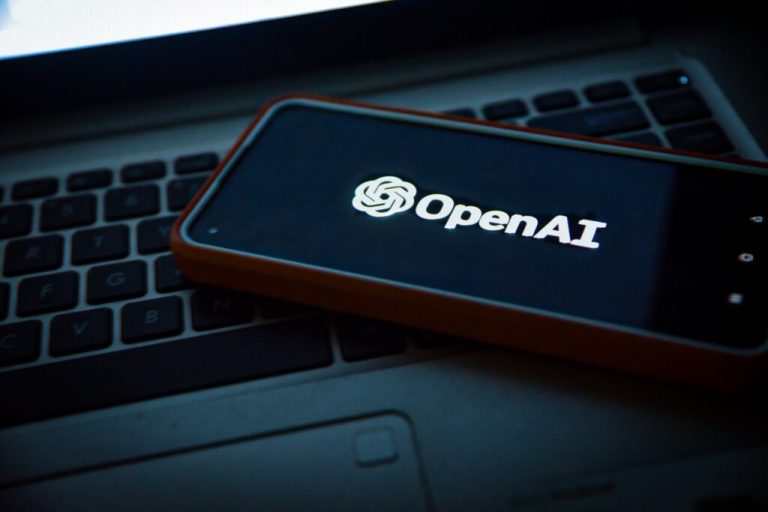Harnessing Open-Source Innovation: Shaping AI Regulations for the Future
AI Act: The Power of Open-Source in Guiding Regulations
As the European Union deliberates the AI Act, insights drawn from open-source software can significantly shape the regulatory framework governing open machine learning (ML) systems. This Act, poised to set a global standard, is designed to tackle the challenges associated with artificial intelligence (AI) while promoting the advancement of state-of-the-art technologies.
A central feature of the AI Act is its endorsement of open-source, non-commercial, and academic endeavors within the AI landscape. This encouragement aims to cultivate the development of AI systems that are safe, transparent, and accountable, ultimately benefiting all citizens within the EU.
By leveraging the successful practices of open-source software development, policymakers can craft regulations that not only promote open AI development but also protect user interests. By offering exemptions and proportional requirements for open ML systems, the EU has the opportunity to stimulate innovation while ensuring a flourishing open-source community.
Various organizations, representing both commercial and nonprofit interests—such as GitHub, Hugging Face, EleutherAI, and Creative Commons—have collaborated to release a policy document urging EU policymakers to safeguard open-source innovation.
Proposals for Encouraging Open-Source Innovation
The organizations put forth five key recommendations:
- Define AI components clearly: Establishing precise definitions will enable stakeholders to understand their obligations and facilitate collaboration within the open ecosystem.
- Exempt collaborative development: The Act should specify that contributors to public repositories are not subject to the same regulatory frameworks as commercial entities, thereby promoting open-source contributions.
- Support coordination with the open-source ecosystem: Encouraging cooperation between the AI Office and open-source developers will enhance transparency and knowledge sharing.
- Ensure effective research and development exceptions: Allowing limited real-world testing under various conditions can facilitate innovation while prioritizing safety and accountability.
- Set proportional requirements for foundation models: Differentiating the needs and applications of foundation models, including open-source approaches, will ensure equitable treatment and foster competition.
The advancement of open-source AI development delivers a multitude of benefits, including greater transparency, inclusivity, and modularity. It enables different stakeholders to collaborate and enhance each other’s efforts, fostering the creation of more resilient and varied AI models. For example, EleutherAI has emerged as a leading open-source ML laboratory, providing pre-trained models and code libraries that facilitate foundational research and lower the barriers to large AI model development.
Similarly, the BigScience initiative, which convened over 1,200 researchers from diverse fields, underscores the significance of enabling direct access to AI components across various institutions and disciplines. These open collaborations have democratized access to advanced AI models, allowing researchers to tailor them for specific tasks or languages, thereby enriching the AI ecosystem.
Open research and development also enhance the transparency and accountability of AI systems. For instance, the nonprofit research organization LAION has released openCLIP models to identify and address biases in AI applications. The shared access to training data and model components allows researchers and the public to examine the mechanisms of AI systems critically, challenging misleading or inaccurate assertions.
The success of the AI Act hinges on finding a balance between regulatory measures and support for the open AI ecosystem. While transparency and openness are crucial, the regulations must also address risks, establish standards, and clarify liability in relation to potential harms caused by AI systems. As the EU paves the way for AI regulation, embracing open-source and open science will be essential to ensure that AI technology serves the public good.
Implementing the suggestions from various organizations within the open AI ecosystem can enhance the AI Act, promoting collaboration, transparency, and innovation. This approach positions Europe as a frontrunner in the responsible advancement and application of AI technologies.
To delve deeper into AI and big data insights from industry experts, consider attending the AI & Big Data Expo, scheduled in Amsterdam, California, and London. This event coincides with Digital Transformation Week, providing a great platform for learning.
For more information on other enterprise technology events and webinars, explore the offerings powered by TechForge.
Join our community to stay updated with premium content and the latest tech news delivered directly to your inbox.
The Role of Machine Learning in Enhancing Cloud-Native Container Security
Machine learning is increasingly becoming essential for boosting the security of cloud-native containers. By utilizing algorithms that learn from data patterns, organizations are able to identify vulnerabilities in containerized applications more effectively and proactively.
Innovative Machine Learning Applications Transforming Business
The integration of machine learning into various business applications is revolutionizing operations. These advancements not only improve efficiency but also enable smarter decision-making processes, ultimately leading to increased productivity and effectiveness across various sectors.
AI and Bots in Music Streaming Fraud
Recent reports have surfaced alleging the use of artificial intelligence and bots to artificially inflate music streaming numbers. This fraudulent activity not only undermines the integrity of music platforms but also creates an uneven playing field for artists.
The Advantages of Collaborating with Outsourced Developers
Partnering with outsourced developers offers significant benefits, particularly for companies looking to optimize their technological capabilities. This collaboration not only enhances resource availability but also brings in specialized skills that drive innovation and improve project outcomes.
Magistral: Mistral AI Challenges Big Tech with Reasoning Model
In the realm of artificial intelligence, Mistral AI is making notable strides by developing a reasoning model aimed at competing with established tech giants. This innovative approach could reshape how AI interacts with complex problems, potentially offering more nuanced solutions.
The AI Blockchain: What Is It Really?
The concept of an AI blockchain presents a fascinating intersection between distributed ledger technology and artificial intelligence. This synergy may enhance data security, accountability, and efficiency across various applications, paving the way for more advanced AI systems.
Apple’s AI Developments at WWDC
At the recent WWDC, Apple unveiled its core AI model for developers, marking a strategic move amidst a thoughtful approach to innovation. This initiative reflects Apple’s commitment to integrating advanced AI services while maintaining a balance between user experience and technological advancement.
Here is a list of countries and territories:
- Caledonia
- New Zealand
- Nicaragua
- Niger
- Nigeria
- Niue
- Norfolk Island
- North Macedonia
- Northern Mariana Islands
- Norway
- Oman
- Pakistan
- Palau
- Palestine, State of
- Panama
- Papua New Guinea
- Paraguay
- Peru
- Philippines
- Pitcairn
- Poland
- Portugal
- Puerto Rico
- Qatar
- Romania
- Russian Federation
- Rwanda
- Réunion
- Saint Barthélemy
- Saint Helena, Ascension and Tristan da Cunha
- Saint Kitts and Nevis
- Saint Lucia
- Saint Martin
- Saint Pierre and Miquelon
- Saint Vincent and the Grenadines
- Samoa
- San Marino
- Sao Tome and Principe
- Saudi Arabia
- Senegal
- Serbia
- Seychelles
- Sierra Leone
- Singapore
- Sint Maarten
- Slovakia
- Slovenia
- Solomon Islands
- Somalia
- South Africa
- South Georgia and the South Sandwich Islands
- South Sudan
- Spain
- Sri Lanka
- Sudan
- Suriname
- Svalbard and Jan Mayen
- Sweden
- Switzerland
- Syria Arab Republic
- Taiwan
- Tajikistan
- Tanzania, the United Republic of
- Thailand
- Timor-Leste
- Togo
- Tokelau
- Tonga
- Trinidad and Tobago
- Tunisia
- Turkmenistan
- Turks and Caicos Islands
- Tuvalu
- Türkiye
- US Minor Outlying Islands
- Uganda
- Ukraine
- United Arab Emirates
- United Kingdom
- United States
- Uruguay
- Uzbekistan
- Vanuatu
- Venezuela
- Viet Nam
- Virgin Islands, British
- Virgin Islands, U.S.
- Wallis and Futuna
- Western Sahara
- Yemen
- Zambia
- Zimbabwe
- Åland Islands







